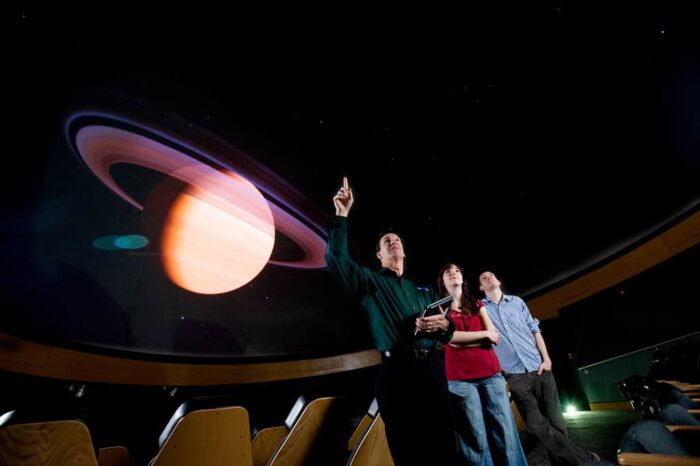Two New Grants Awarded to the Physics and Astronomy Department

Two new grants, totaling $545,000, have been awarded to Texas A&M University-Commerce for the Department of Physics and Astronomy to continue their research on reactions with rare isotopes and neutron capture reactions in stars. Both grants have been awarded for three years and will bring A&M-Commerce in collaboration with universities and scientists from around the world.
One project, New Tools for Radiative Neutron Capture in Stars and on Earth, is funded by the National Science Foundation for a total of $350,000. Focusing on star evolution and applications of nuclear science on Earth, the project will look at reactions induced by deuterium projectiles with the goal to extract radiative capture reactions with neutrons and also the development on new computational tools. The project will be conducted by A&M-Commerce faculty and staff, in close collaboration with theorists at College Station, Hungary, and Australia.
“This grant is a great opportunity to enhance collaboration with our main system campus in College Station while working in an area of much interest for the state of Texas, nuclear energy and its relevance to stellar evolution,” said Dr. Carlos Bertulani, Principle Investigator for the projects and professor of physics and astronomy at A&M-Commerce. “We are proud that this project was granted to Commerce in a national competition involving many prestigious institutions nationwide. The grant will allow us to bring scientists from Australia, Hungary, and Japan, among others, to our campus on a regular basis.”
The other project, Reactions with Rare Isotopes, was granted by the Department of Energy for a total of $195,000. The investigators on this project will study reactions with short-lived nuclei, which are essential for stellar evolution and cataclysmic events such as novae and supernovae explosions. It will also involve research collaborations with experimentalists at the GSI laboratory in Darmstadt, Germany, the RIKEN laboratory in Wako-shi, Japan, and the NCL laboratory in East Lansing, Michigan. The grant stems from a recent one billion dollar project from the United States government for the construction of a laboratory at Michigan State University that will be fully dedicated to reactions with short-lived nuclei.
“These grants will help maintain the visibility of the university as a main-stream research university on the national stand,” said Dr. Bertulani.
For more information about the physics and astronomy department, visit https://www.tamuc.edu/academics/colleges/scienceEngineeringAgriculture/departments/physicsAstronomy/default.aspx.


